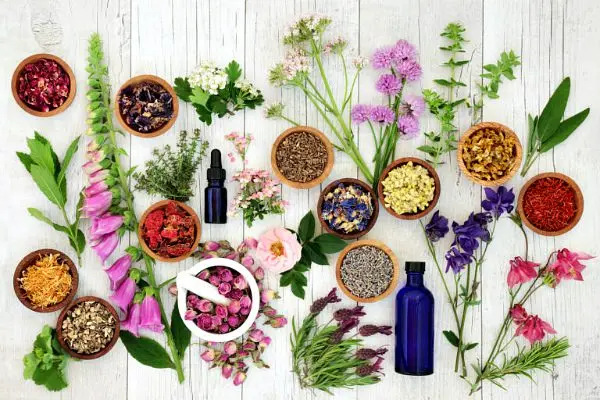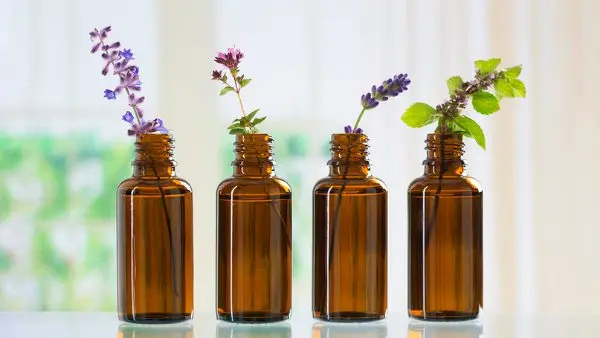Contents
😉 Hello everyone! Thank you for choosing the article “Aromatherapy: what is it …” on this site!
What is aromatherapy
It is a type of alternative medicine along with homeopathy, naturopathy and herbal medicine. Scent therapy is the art of using natural oils from plants to promote human health.
At the beginning of the XX century. the term “aromatherapy” (from the Greek “treatment” and “smell”) was introduced by the French chemist Rene Hattefosse. Three methods of aromatherapy are practiced:
- Indirect inhalation: The essential oil is sprayed indoors. For example, using an aroma lamp.
- Direct inhalation: inhalation of fragrant vapor through an inhaler.
- Massage. The essential oil is added to the base base, only then rubbed into the skin.
History of aromatherapy
Even the most ancient healers knew about the beneficial properties of vegetable oils. More than two millennia ago, the Romans used essential oils for massage. In ancient Egypt and Greece, rituals were performed using incense. “The father of medicine” – Hippocrates in medical practice prescribed fumigation and inhalation to patients.
In the XI-XII century. in Europe, incense appeared that was available to the rich. They were even used during the coronation of monarchs. The antibacterial properties of certain essential oils were soon noticed. They began to be used during epidemics.
For example, the inhabitants of the English town of Bucklesbury escaped from the plague, because grown lavender. Since the XIV century. in Venice began to produce perfume.

Aromatherapy: benefits and harms
Wellness sessions are carried out using various essential oils that have a beneficial effect on the human body. There are a myriad of such oils, each with unique properties, from beneficial effects on the skin to helping treat ailments.
There is a wide range of applications for such a product: internal, external (massage, baths, lotions), air spraying (inhalation, aroma lamps, spray). But do not forget about contraindications.
Cannot be used to treat oils with synthetic additives (they can be used directly only for aroma production). You should not use a low-quality product bought in an unverified place, you should also avoid aromatherapy for asthma.
One of the most popular oil treatments is massage. It relaxes the muscular system and improves skin condition. The oils also have the ability to have a beneficial effect on the nervous system, reducing anxiety, improving mood and increasing vitality.
At home, taking healing baths will be a pleasant and useful procedure. Here’s a simple recipe: add a few teaspoons of sea salt or honey and 4-5 drops of butter to a glass of milk. Dissolve the resulting mixture in the bath. Don’t make the water too hot.
Correctly selected oils will help to achieve the desired result, be it a cosmetic effect or help in the treatment of diseases.
Противопоказания
This product should be purchased from a pharmacy. Do not forget to read the instructions carefully or consult a specialist.
- some oils can trigger an asthma attack or an allergic reaction;
- aromatherapy is not recommended for pregnant women, especially in the first trimester. No need to risk it!
Aromatherapy: the properties of essential oils

- from inflammation and flu: tea tree oil, lemon, juniper, chamomile, eucalyptus, basil, lemon balm, mint, rosemary, thyme, lavender, geranium;
- depression: jasmine, bergamot, orange, carnation, rose, patchouli, ylang-ylang;
- from insects and moths: tea tree, sage, eucalyptus, lavender;
- pain relievers: rosemary, geranium, peppermint, tea tree;
- hypertension: lavender, jasmine, mint, cloves, fennel, rosemary, marjoram;
- hypotension: thyme, sage and thyme;
- immune system: anise, basil, lavender, lemon, thyme, clove, fir, pine and bergamot;
- leads to a normal metabolism: patchouli, fennel, sage, geranium;
- antispasmodics: rosemary, lemon, juniper;
- reduce blood sugar: eucalyptus, geranium, rosemary;
- lower cholesterol: lemon, orange, thyme;
- increase potency: patchouli, ylang-ylang, geranium, jasmine, cloves, nutmeg, sandalwood;
- strengthen nerves: citrus fruits, lemon balm, basil, lavender;
- relaxation: lavender, neroli, melissa, chamomile, orange, geranium, anise, sandalwood;
- for mental and physical activity: mint, fir, orange, bergamot, lavender, cloves, lemon.
😉 Was the information on “Aromatherapy: What It Is” helpful to you? Leave comments and useful tips for the article. Subscribe to the newsletter for new articles by filling out your name and e-mail in the line (top right). See you on the site!









